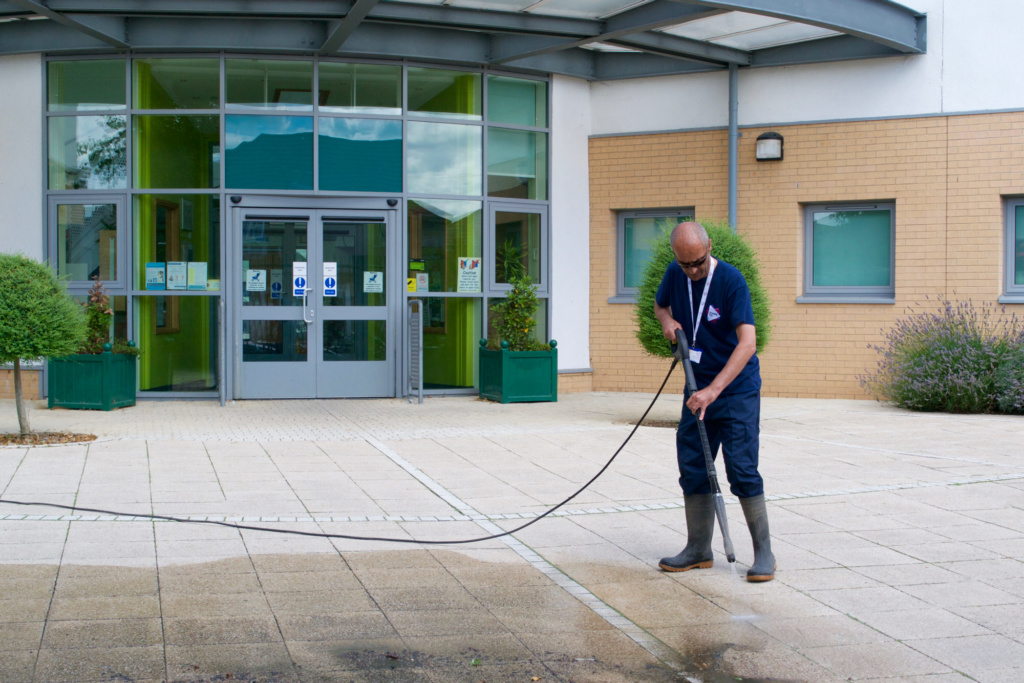Thursday 20th June 2019
How FM providers can support schools and academies during times of change and budget restrictions
Matt Morrell, Head of Facilities Management at Pinnacle Group explores how FM providers can manage the tight budgetary constraints of the educational sector and unravel the complexities of schools converting into academies.
Following a budget cut from central government of £2.7bn since 2015, and with funding in real terms set to decrease in the next year, schools are currently under a huge amount of financial pressure. It is under these conditions that schools need to determine what can be sacrificed to maintain an operational and productive environment – in most cases they scrutinise the provision of the institution’s FM.

The value of Total FM services, such as building maintenance, security and waste management, which are integral to the success of any school and academy, continues to be under review. In response, the FM industry needs to demonstrate it can work efficiently and, in times of constraints, deliver more for less.
In Public Private Partnerships (PPP), benchmarking has become the norm. Over the past two years, the benchmarking process has become increasingly rigorous, with independent data now a requirement in PPPs, rather than just comparison against providers on other contracts. It is now more common for clients to risk market testing services and rotating or replacing their FM providers to ensure they are receiving value for money and the most efficient and cost-effective service.
“Since FM became recognised as an industry in the 1980s, it has been built on strong relationships between the clients and their providers”
While this can be a challenge for many smaller and mid-sized FM providers who are not in a position to utilise technology as effectively as some of the larger, more resourceful organisations, it is not insurmountable. Demonstrating a business ambition to develop strong, long-term relationships and the ability to operate flexibly can go a long way to ensuring a cost-effective, efficient and collaborative partnership, beyond technological innovation.
Since FM became recognised as an industry in the 1980s, it has been built on strong relationships between the clients and their providers, who work towards common goals to ensure buildings and workplaces are operational.
In education PPPs, FM providers will form one part of a trilateral relationship with the school and the local authority (LA), or academy, and the special purpose vehicle (SPV). Adopting a collaborative and flexible approach to their client relationship and contract, they work to will facilitate discussion and agreement about working practices and cost.
Rather than reinforcing a position of ‘supplier’ to the educational sector – though unfortunately so many relationships still do take this format – it is important for FM providers to demonstrate to the LAs and SPVs that long-term partnerships lead to the best educational outcomes. When FM providers are seen as partners and consulted with as early as possible in any process, they are more able to focus on the ultimate objective of all stakeholders: the needs of the pupils.
The role of the FM provider is even more integral when supporting the school-to-academy conversion process.
Since January 2018, 35 per cent of English state-funded schools have been academies, a strategy the government has taken to help education evolve and meet the demands of teachers, pupils and parents.
Navigating the complexities of the contract for a school converted to an academy poses an extra challenge to FM providers who have to demonstrate skills in translating contracts, managing the expectations of all parties and ensuring flexibility in delivery. Many contracts are over 600 pages long and more than 10 years old, and are often taken on by people who have no prior experience in this field or the field of PPPs and Private Finance Initiatives (PFIs). On acquiring the school and its operations, many academy owners, reasonably, want to implement change in the educational and operational model.




Often, academy business managers want to develop the site to accommodate an increased number of pupils or incorporate new curriculum changes. However, the terms of the PPP contract often make that desire commercially complex and difficult to realise.
At the heart of such a situation, flexibility is key. It is the role of an FM provider to inform the academy business manager of the formal process as dictated by the contract and seek alternatives by giving suggestions as how to best utilise the current space, thereby increasing pupil numbers or allowing flexible teaching spaces where possible. Both parties would be aware of, and want to avoid, the alternative: a Deed of Variation needing to be drawn up for multiple lawyers and banks to approve, leading to a significant, and unavoidable, expense in legal and administrative fees.
Some of the common challenges facing FM providers in the educational sector relate to building use and the length of time buildings are used for. Schools and academies will often try to increase their income generation by extending the scope of their facilities and offering them to the public for use. However, existing pre- and after-school clubs and sports or swimming lessons could make new income-generating measures difficult to achieve. In that case, the FM provider needs to address this and find flexible ways for the organisation to achieve its goal.
The educational sector is under increasing pressure to maintain standards at lower costs. With such responsibility for operations, it is no surprise that FM providers are asked to do the same. But, with a commitment to strong relationships, a flexible approach and the ability to understand the contractual landscape, it is possible for FM providers to navigate these challenges. Our role should be to work as a partner and add to the overall strategic conversation about how operations are delivered.
This article was originally featured in Tomorrow’s FM magazine.